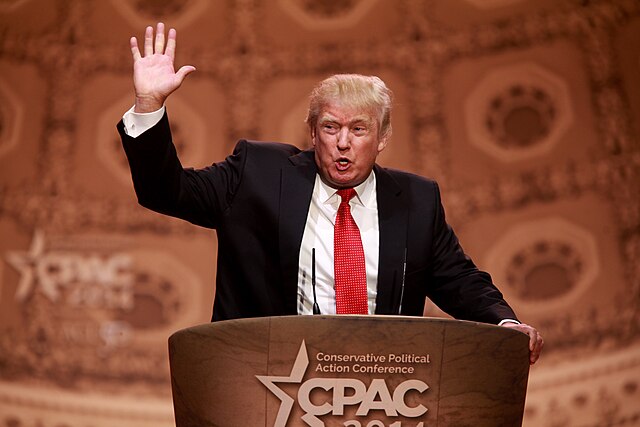In the context of Donald Trump’s recent electoral victory in the United States, the Tax Annual Summit, the flagship event of Martín Litwak’s 1841 Foundation, took place in Zonamerica, Uruguay.
The jurist opened the meeting by criticizing the global trend of increasing taxes, which he characterized as a weakening of property rights and privacy.
Protectionism: Is Trump Serious?
Throughout the day, international experts debated global tax policies. Dan Mitchell, President of the Center for Freedom and Prosperity, presented “The Global Impact of the U.S. Presidential Election on Taxes and Privacy Rights.”
Mitchell questioned whether Trump is truly serious about his announcements of significant global tariff increases: “The best approach would be to use trade taxes to finance tax cuts that promote economic growth. But I think it’s nothing more than a fantasy to return to the 1800s in terms of trade.”
The expert also pondered what would happen if the next U.S. president ultimately implements these measures: “Will the world enter a race to raise taxes? That seems very dangerous to me.” Mitchell fears that if Trump does not deeply reform the system, it will all end with more debt and higher taxes.
Offshore Jurisdictions and Global Trends
David Saied Torrijos, a Panamanian economist and director at PWC for Central America and the Dominican Republic, presented a personal overview of offshore jurisdictions. Saied acknowledged that Panama had been marked by the Panama Papers scandal and defended the economic value of “offshore financial centers.”
Globally, Hong Kong and Singapore remain especially thriving offshore hubs, with Delaware in the United States emerging as the fastest-growing jurisdiction.

Saied believes that more taxes driven by the OECD are on the horizon, targeting the digital economy and cryptocurrencies. Currently, he noted, 24 countries are on the organization’s gray list and three on the blacklist.
Comparing Liberalism in Uruguay and Argentina
Hernán Bonilla, President and Founder of CED Uruguay, provided a theoretical overview of the different schools of liberalism around the world, outlining distinctions between the Chicago School, the French School, and the Austrian School, the latter popularized by Javier Milei in Argentina.
Bonilla compared the liberal ideologies on both sides of the Río de la Plata: Uruguay has a pragmatic liberalism, while Milei embodies a dogmatic libertarianism, he explained.
The styles of Uruguay’s current president, Luis Lacalle Pou, and his Argentine counterpart differ markedly: “Perhaps I am biased as a Uruguayan, but I believe that style matters. It’s not the same, and it must be said that Lacalle Pou will end his term without ever raising his voice.”
In terms of substance, Bonilla highlighted that Uruguayans support a state that helps those in need, in contrast to Milei, who seeks to dismantle it. Bonilla also acknowledged that one of Javier Milei’s achievements has been popularizing liberal ideas and that, without his radical style, it might have been impossible for him to gain power in Argentina.
Closing and Reflections
The day concluded with presentations by entrepreneur John Chisholm and attorney María Eugenia Talerico.
Martín Litwak reminded the audience why the Foundation uses the year 1821: “That was the year when there was no income tax anywhere in the world,” he explained. Before then, there were taxes on various things (soap, windows, dogs…), but according to Litwak, in 1821, the introduction of income tax generalized the state’s knowledge of individuals’ earnings, invading their privacy.
To access the recordings of the presentations, click here.




